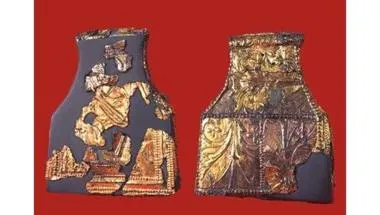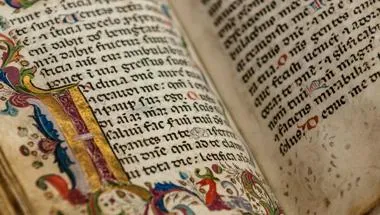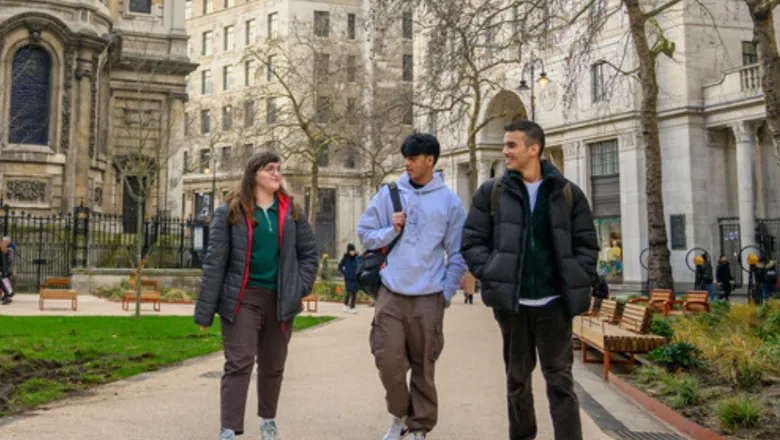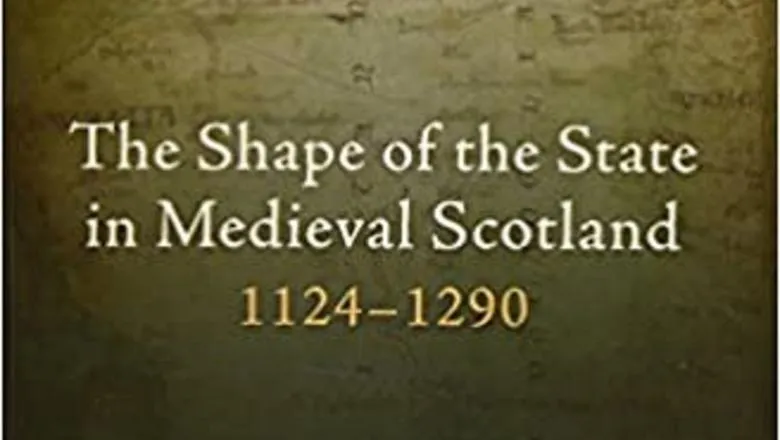
Professor Alice Taylor
Professor of Medieval History
- Vice-Dean (Research), Faculty of Arts & Humanities
Research interests
- History
Biography
I joined the department in 2011, after a research fellowship at King’s College, Cambridge. I received my doctorate in medieval history from the University of Oxford in 2009, supervised by Dr John Maddicott and the late Professor Richard Sharpe. This research led to my first book, The Shape of the State in Medieval Scotland, which was co-awarded the Royal Historical Society’s Whitfield Prize in 2017. Following two major books on the earliest surviving texts of Scottish law (The Laws of Medieval Scotland (2019) and, with John Reuben Davies, Regiam Maiestatem: the earliest known version (forthcoming 2022), I am currently working on two book projects: the first provisionally entitled A history of politics in twelfth-century Europe; the second, a legal history of late medieval Scotland, provisionally entitled The laws of the realm in late medieval Scotland: Culture, practice, expertise, 1291–1549.
Between 2014 and 2017, I was Co-Investigator on the AHRC-funded project ‘Models of Authority: Scottish Charters and the Emergence of Government, 1100-1250 and, since 2017, I have led the collaborative project ‘The community of the realm in Scotland, 1249-1424: history, law and charters in a recreated kingdom’ (www.cotr.ac.uk). This has led to many meaningful collaborations
I am currently a member of the editorial board of the journal Past & Present and, from January 2022, an editor of The English Historical Review. I am also a Fellow of the Royal Historical Society. In 2017, I was awarded a Philip Leverhulme Prize for History.
Research interests and PhD supervision
- European politics in the central middle ages and political thought; history of politics
- Medieval states and governments
- Law and legal norms; ideas of legal traditions.
- British and Irish history over the long term
- Medieval memories and identities; historical writing.
I have spent much of my early academic career working on medieval Scotland, which has uncovered the earliest surviving texts of Scottish law in their earliest manuscript form. This detailed work produced three books—one, The Shape of the State—wrote a new account of state formation on the basis of these legal texts; The Laws of Medieval Scotland—is a massive critical edition, translation and commentary of these texts and their manuscript contexts so that these texts can be used by anyone; while Regiam maiestatem (with John Reuben Davies) is the first modern critical edition of Scotland's earliest surviving legal treatise. I'm currently writing a book—The laws of the realm in late medieval Scotland: Culture, Practice, Expertise, 1291–1549—the first legal history of late medieval Scotland to take full account of its manuscript history.
I have also published on topics such as state formation, cultural memory, newly discovered histories, and social rituals and relationships.
I’m also bringing all these strands together, and am working on a history of politics and the political sphere in twelfth-century Europe. I’d like to see an account of medieval politics which extends beyond the dynastic and secular/spiritual division. Twelfth-century Europe was a political place – my book attempts to explain that from the disparate (and sometimes not entirely helpful) surviving textual evidence. In the longer term, I'm also working on an entirely different project: a history of Britain and Ireland considering the relationship between law and politics from the eleventh century to the present day.
I welcome applications from potential PhD students in any of the above areas.
Teaching
I teach at all levels of the curriculum, teaching modules from, for example, the idea of the individual in the Middle Ages (and how that relates to wider historical periodisations), to a cultural and social history of the medieval aristocracy, to a longue durée module on queer histories, to a module which uses anthropological and sociological work to understand the medieval past. More broadly, I embed in my teaching a real sense of why it matters that we continue to study the more distant past – and how studying medieval history—indeed all pre- or 'non'-modern history—is key to any understanding of the modern era and the challenges it is facing.
Expertise and public engagement
I co-convene two seminars at the Institute of Historical Research (Earlier Middle Ages and European History, 1150-1500. I also co-host the podcast Medieval History for Fun and Profit with my colleague, Alice Rio, where we answer questions from the public about anything and everything they would like to know about the Middle Ages. I have contributed to the Times Literary Supplement and Guardian Masterclasses, made 'appearances' on BBC Radio 4, and work collaboratively with museums and heritage institutions, particularly with my research project on medieval Scotland.
Selected publications
Alice Taylor, ‘What does Regiam Maiestatem actually say (and what does it mean)?’ in W. Eaves, J. Hudson, I. Ivarsen, S. White (eds), Common Law, Civil Law and Colonial Law: Essays in Comparative Legal history from the 12th to the 20th centuries (Cambridge, 2021).
Alice Taylor, ‘Formalising aristocratic power in royal acta in late twelfth and early thirteenth-century France and Scotland’, in Transactions of the Royal Historical Society 28 (2018)
Alice Taylor, The Shape of the State in Medieval Scotland, 1124–1290 (Oxford, 2016; paperback, 2020).
Alice Taylor, The Laws of Medieval Scotland: Compilations of Royal Law from the 13th and 14th centuries (Edinburgh, 2019)
Regiam Maiestatem: the earliest known version, ed. and trans. J.R. Davies, intro. by Alice Taylor (Edinburgh, 2022).
Research

Centre for Late Antique and Medieval Studies
Interdisciplinary centre for the study of late antique and medieval history, languages, philosophy, religion, literature and music in western and eastern Europe.

Medieval History Research Hub
The Medieval History research hub brings together historians working on any aspect of the period 400-1500 CE across Eurasia and Africa.

Women & Gender through History
Committed to an intersectional and interdisciplinary approach, colleagues come to the subject through histories of work.

Knowledge Orders before Modernity: a Leverhulme Doctoral Scholarships Programme
Equipping future generations with critically endangered skills and technical expertise essential for understanding manuscript texts and archival records.
Project status: Starting
News
King's launches Doctoral School for Arts & Humanities
The new school is a major investment into the postgraduate research environment for the arts and humanities by King's.

Dr Alice Taylor on Royal Historical Society shortlist
Dr Alice Taylor's first book, The Shape of the State in Medieval Scotland, 1124-1290, has been shortlisted for the Royal Historical Society's 2017 Whitfield...

Four Teaching Excellence Awards in the History department
Members of History Department recognised with a Teaching Excellence Award.

Dr Alice Taylor on BBC Radio 4's Making History
Lecturer in Medieval History Dr Alice Taylor joined Tom Holland and guests on BBC Radio 4 on the Making History Show.

Research

Centre for Late Antique and Medieval Studies
Interdisciplinary centre for the study of late antique and medieval history, languages, philosophy, religion, literature and music in western and eastern Europe.

Medieval History Research Hub
The Medieval History research hub brings together historians working on any aspect of the period 400-1500 CE across Eurasia and Africa.

Women & Gender through History
Committed to an intersectional and interdisciplinary approach, colleagues come to the subject through histories of work.

Knowledge Orders before Modernity: a Leverhulme Doctoral Scholarships Programme
Equipping future generations with critically endangered skills and technical expertise essential for understanding manuscript texts and archival records.
Project status: Starting
News
King's launches Doctoral School for Arts & Humanities
The new school is a major investment into the postgraduate research environment for the arts and humanities by King's.

Dr Alice Taylor on Royal Historical Society shortlist
Dr Alice Taylor's first book, The Shape of the State in Medieval Scotland, 1124-1290, has been shortlisted for the Royal Historical Society's 2017 Whitfield...

Four Teaching Excellence Awards in the History department
Members of History Department recognised with a Teaching Excellence Award.

Dr Alice Taylor on BBC Radio 4's Making History
Lecturer in Medieval History Dr Alice Taylor joined Tom Holland and guests on BBC Radio 4 on the Making History Show.

